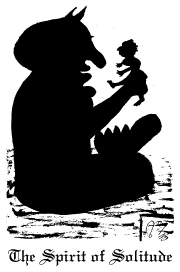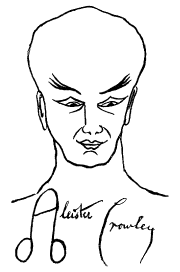

- CONTENTS
- 40
- There are two ways of returning from Skardu to Srinagar; one the way we had come, the other across the Deosai plateau. This is a high table land from fourteen to seventeen thousand feet, crossed by four principal rivers. It has a devilish reputation for inhospitality. The rivers, in particular, play the prank of inducing you to cross one or two of them, and then coming down in spate, holding you up indefinitely and starving you out. I wanted to go back by that way; but Eckenstein’s memories were too painful. We decided to travel separately—he with Knowles, and I with the doctor. (After we had started, he changed his mind and followed us.) On the twenty-sixth of August I had a final go of fever and lay in bed till the afternoon, after which I got up and saw to the bandobast for the journey. The next day we started for Pinderbal, about five hours on horseback—a very pleasant ride up a steep nala. The only incident was that my pony had been reading the Old Testament and proceeded to vary his pleasures by bolting under a tree so that I was caught in its branches like Absalom, while he went on his cheerful way, neighing merrily. We camped under a huge boulder; and as I sat by the fire after dinner reposing delightfully with a pipe, a very characteristic incident occurred.
- A shapeless mass was moving down the slopes. It resolved itself into a man who must have been nearer seventy than sixty years old, carrying a sack, much bigger than himself, of what proved to be dried apricots. I greeted him affectionately and offered him some tobacco. He squatted opposite me and began to chat. When he said “dried apricots” I had to summon all my philosophy to prevent raising my eyebrows slightly, for this was indeed carrying coals to Newcastle. Baltistan consists exclusively of rocks, streams and dried apricots. The last named are its principal export.
- A moment—and I understood! The poor old man had been unable to cross the plateau and was returning home to die! I expressed my sympathy and offered help. Oh, no, not at all! He had carried his sack all the way to Srinagar; but finding on arrival that the price of his produce had gone down by a fraction of a penny a pound, he refused to sell and was bringing the stuff back. The sack itself looked fabulous, so I got out the “butcher’s terror” and found that it weighed four hundred and ten pounds. The whole business struck me as extraordinarily sublime. I dashed the old boy five rupees. This made him wild with happiness and restored his debilitated conviction in the existence of a Supreme Being who put in most of His time in caring for his faithful.
- The next day, about four hours’ ride took us to the top of the pass, from which we had a magnificent view of the plain of Skardu and the Indus backed by the great mountains, while in front of us lay the Deosai, an absolutely treeless wilderness of comparatively level country framed by minor peaks. It gives a unique impression of desolation. I have never seen its equal in this respect elsewhere. Yet the march was very pleasant with many lovely flowers and streams. The weather was delightful and the going good.
- The next day we went to Kranub (Kalapani is another name for it) in less than six hours in a cold wind under a threatening sky. After camping, the rain poured down in torrents. On the thirtieth we came down from the plateau in eight hours to Burzil, where there was a dak baghla. It rained continually till the last hour, so that we missed the distant view, but the foreground told us of the complete change of the character of the country.
- Burzil is on the Gilget road. This “road” (which is a good mule path) was absolutely crowded with every beast of burden available: men, mules, bullocks, asses, horses, camels—all desperately bent on supplying the small garrison for the winter before the snow closed the passes. Gilgit being on the Indian side of the Pamirs and the country to the north very much more difficult than to the south, I was highly amused by the chronic anxiety of the government that Russia would invade India by this route. I doubt whether the combined resources of both governments would suffice to bring over half a dozen regiments. We are always hearing about the invasion of Alexander the Great; but his expedition is not to the point. Since his time climatic conditions all over the world have changed very considerably. I shall have more to say on this point when I come to deal with the Sahara. For the present I content myself with observing that in the time of the Macedonian empire the country was probably much more fertile. This is sufficiently proved by the traces of past civilizations, quite apart from the general evidence as to the physical phenomena which are in progress on our planet.
- We descended the Burzil valley, a gorge of amazing beauty and colouring, with gorgeous trees to “fledge the wild-ridged mountains steep by steep”. At Pashwari it had already begun to open, and at Gurais a broad calm stream winds slowly through a broad level valley. As I rode slowly down the track to this camp I heard a sudden shout behind me. “Hat Jao!” (get out of the way!); a moment later a gigantic English major brushed past me muttering curses. I laughed into my beard. It was amusing to be taken for a native!
- At Gurais I found Ernest Radcliffe, assistant forest commissioner of Kashmir, in camp. I already knew him well; he received me with open arms and gave me that hot bath of my life, with lunch and dinner to follow. At dinner I met the galloping major, who did not recognize me when he found me sitting, clothed and in my right mind, and was extremely embarrassed when he realized his unintentional rudeness of the morning.
- At Gurais are a big suspension bridge and the remains of a very large old fortress. On the second we went to Gurai and on the third to Tragobal. The road here crosses a pass some ten thousand feet high. It is a magnificent ride through the wildest yet richest forest and mountain scenery. Some of the trees are enormous and one obtains intoxicating views of the valley framed by their dark splendour. Few men know what a view can be. The European idea is to go, preferably by train, to some high place and obtain a panorama. To me, even the noblest panoramas are somewhat monotonous. Their boundlessness diminishes their ęsthetic value. To see distant prospects to the best advantage one needs a foreground. In rock climbing and travelling through mountain forests one sees nature in perfection. At every turn, the foreground picks out special bits of the background for attention, so that there is a constant succession of varying pictures. The eye is no longer bewildered by being asked to take in too much at once; and the effect of the distance is immensely heightened by contrasts with the foreground.
- Soon after crossing the pass, the Vale of Kashmir with the Wular Lake bursts upon the view. Once again, the character of the scenery had undergone a complete transformation. We rode down joyously to Bandipura in four hours. The mosquitoes on this part of the lake should have been repeatedly exposed in Truth. Their reputation stinks in the country. So we chartered a dunga (which is a variety of houseboat employed when any considerable distance has to be covered) and crossed the lake to Baramula. The crossing should have taken five hours; it took twelve.
- We lazed a day among the delights of comparative comfort, marred only by the return of my malaria. But on the sixth I drove in a tonga to Srinagar, 132 days after leaving it. The expedition to Chogo Ri was over.
-
-
- 41






